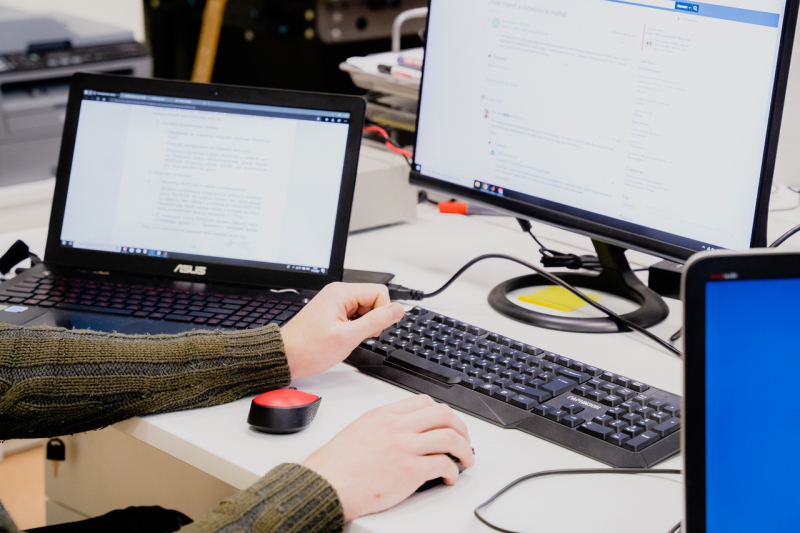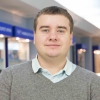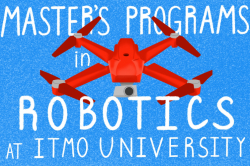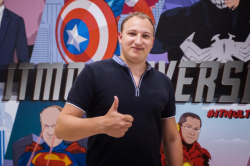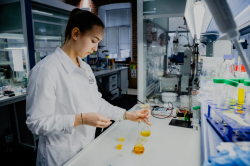The winter school was organized by ITMO’s Faculty of Control Systems and Robotics.
“In 2019, we held the Summer School on Nonlinear and Adaptive Control and invited world-renowned professors as the school’s speakers. Back then, we chose to try an interesting format: instead of holding plenary talks for the scientific community, our speakers hosted classes for students. Drawing on this experience, we decided to do something similar. We kept the event’s format but this time, invited our young and ambitious lecturers to speak at the event. We also introduced testing, which would give prospective students the opportunity to enroll in ITMO’s Master’s programs. This testing was, in essence, an entrance exam in itself. Within a strict time limit, students had to answer numerous questions with just one attempt allowed. This guaranteed an honest and objective assessment of the applicants’ knowledge,” says Anton Pyrkin, dean of ITMO’s Faculty of Control Systems and Robotics.
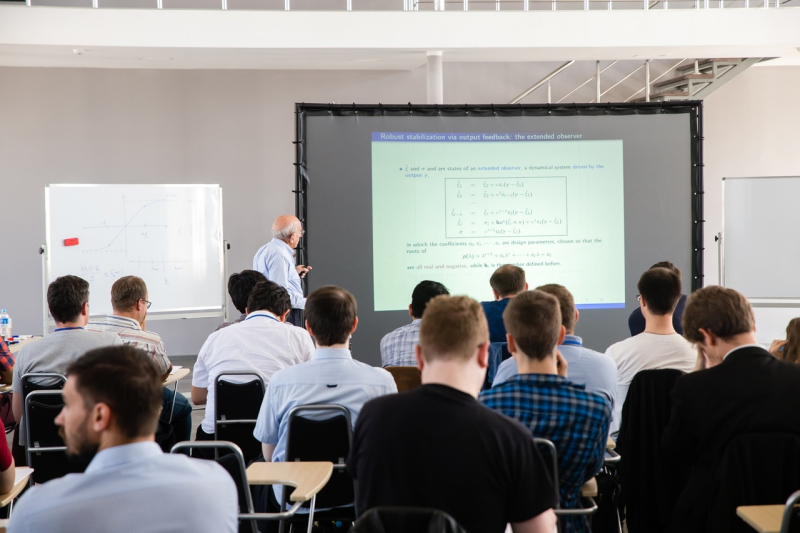
Tracks
The school’s program combined the top current trends in the field of control systems and robotics. As noted by Anton Pyrkin, these three fields correspond to the largest educational programs at the faculty.
- Mathematical Engineering and Control Systems
This track was designed for participants who have an interest and competencies in mathematics and are going to continue exploring digital control systems in the future.
Oleg Borisov, an associate professor at the faculty, introduced students to the modern theory of control systems and also presented a report on the geometric approach to the synthesis of robust control laws. His colleague, Vladislav Gromov, spoke about robotic systems and applications, presenting a detailed classification of modern robotic systems: the use of robots in production, logistics systems, control methods and principles, necessary measuring tools, and tasks requiring intelligence.
- Electrical Engineering and Industrial Systems
Students had the chance to become acquainted with cutting-edge technologies and innovative trends in the field of instrumentation and mechanical and electrical engineering.
Associate professors Dmitry Lukichev and Nikolai Poliakov told the participants about today’s converters of robotic and energy systems. Maksim Afanasyev and Yury Andreev, members of the faculty’s staff, delivered a presentation on the present state and the key prospects of industrial cyber-physical systems.
- Robotics and Artificial Intelligence
The track aimed to promote a greater understanding of robot design methods. Its participants were students wishing to create, program, and train new robots in the future.
Associate professor Alexey Vedyakov spoke about the development and applications of machine learning methods and encouraged students to apply their new knowledge and skills in solving the problem of balancing a pendulum. And Ivan Borisov, an employee at the International Laboratory of Biomechatronics and Energy-Efficient Robotics, introduced students to morphological design and modeling in screw theory.
Participation in the school was completely free; students only had to fill out a registration form before the start of the school. All classes were held via Zoom. Students could also use a Telegram chat to interact with other participants and the staff.
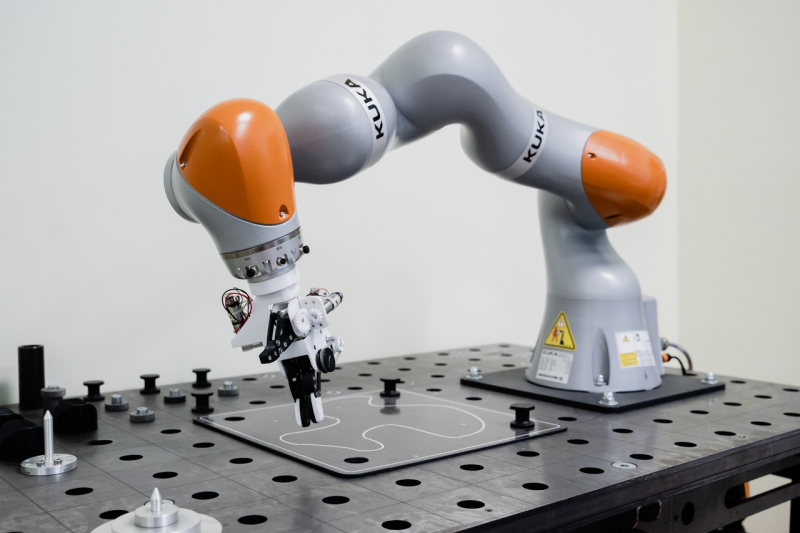
Anton Pyrkin adds that the organizers strived to attract as much attention as possible to ITMO’s Master’s programs. The task was not to simply touch on the educational programs, but to give prospective students the chance to learn more about the university’s opportunities by listening to lectures by top-tier specialists.
“We could have and actually have held this event in-person before. However, we decided to try a rather convenient and efficient format to attract more potential applicants. People from all over the world could forget about any travel difficulties and simply join the online school to meet the professors and other participants. This way, the participants learned about their educational prospects through a wave of positive emotions, knowledge, and new connections – and not through annoying social media ads,” he notes.
In total, the winter school brought together 110 Bachelor’s and Master’s students; over 70% of the participants were from other universities. Over the course of three days, they attended lectures by faculty members, followed by the final test.
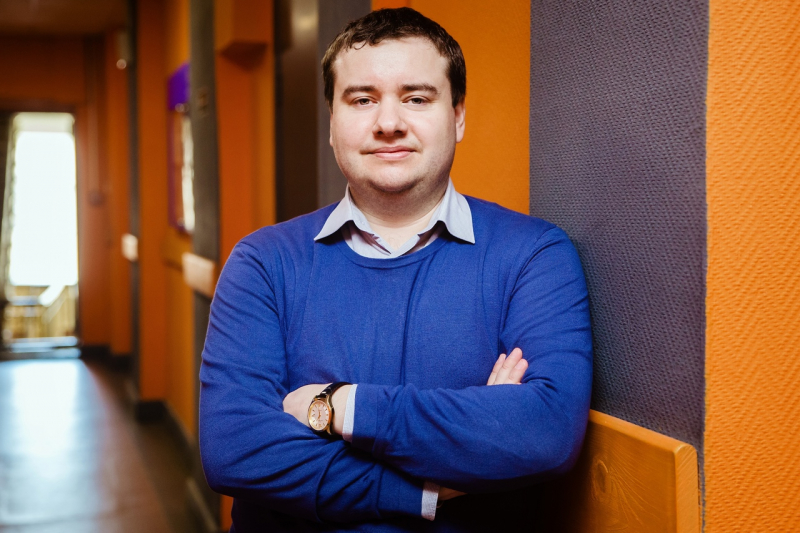
Results
The participants who attended all the lectures and performed well on the testing will be able to enroll in ITMO’s Master’s programs without taking entrance examinations. As a result of the school, 46 applicants will have such an opportunity. Depending on which test they took, they will study Robotics and Artificial Intelligence, Digital Control Systems, Electrical Engineering, or Industrial Cyber-Physical Systems.
“We attracted the attention of motivated and interested people to the programs and demonstrated our advantages. We are happy with the result. We have prepared quality materials and found a way to get to know our prospective students in advance,” says Anton Pyrkin. “The testing was not easy; students who didn’t attend all the lectures were unlikely to pass it. And the test results prove this: less than half of the registered participants were able to pass the final test. That means it was no easier than an exam, and the winners deserve to study in our programs. We’re looking for new ways to get to know our target audience and we enjoyed this particular experience.”
